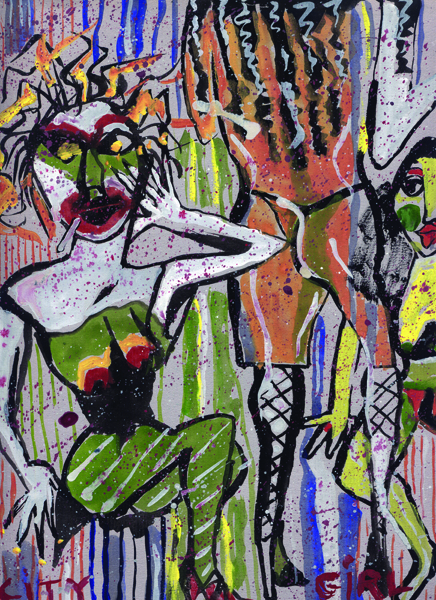Below is an excerpt of James Kyung-Jin Lee’s guest editor’s introduction for the recently published special issue commemorating the career of Amerasia Journal senior editor, Russell C. Leong.
“Anxieties of Influence”
From Amerasia Journal 37:1 (2011)
By James Kyung-Jin Lee
University of California, Irvine
The story that Shawn Wong tells of the “birth of Wallace Lin,” Russell’s first but certainly not only nom de plume, is a bit different from the one I’ve heard from Russell himself and from others who’ve heard it too. You will read Shawn’s version shortly. In the version that I remember, the last name derives not from a friend, but from his uncle; the first comes from his love of Wallace Stevens’s poetry, which may be a bit surprising in 2011, but, as Karen Tei Yamashita said recently, “We all liked Wallace Stevens back then.” I’m reminded in the slippage between these two versions—love for Wallace Stevens’s work and when he wrote to Shawn, “Wallace Stevens is a poet, right?”—of a moment in Maxine Hong Kingston’s The Woman Warrior, when the old couple in Maxine’s Fa Mu Lan fantasy laugh and say to her, “That’s funny. You tell good stories.” Of course, in the creative vocations in which Russell has been engaged—as writer, visual artist, editor, scholar, and activist—both stories are true, because as John Edgar Wideman has put it, all stories are true. It’s entirely possible that all of the stories of the creation of Wallace Lin never actually happened, but to focus on the facticity of origins is to miss the point. The point is the making of story itself, and how that story means and matters as it enters your own. Let me share with how these stories, real or fake, but certainly all true, enter my own today.
Today, I like Shawn’s version better because there is in its stance—“Wallace Stevens is a poet, right?”—a thick gesture, of homage and anxiety, of naming and off-handedly dismissing an identity, of embracing and disavowing the lyrical archive that can poison as much as it can sustain. Today, Wallace Lin and Wallace Stevens come together by way of a poem whose stance feels tolerable and therefore utterly necessary. Russell was in his early twenties when he dared to assume the name of the seemingly conservative author of “Anecdote of a Jar,” and was living in Taiwan: perhaps it was on this island soil that he could first claim the American voice that might have been a reluctant inheritance. There is something in me that compels me to imagine Russell taking on this namesake that “everyone read back then,” in part because that stance is how I met Russell myself when I first arrived in California as a thoroughly naïve graduate student from the east coast. With years of training in post-structuralist theory on the one hand and the calloused hands and hearts of activist work in Philadelphia-based Asian American community organizations on the other, my first encounter with Russell, whom I knew then only as the editor of Amerasia with the messy office next to the graduate student lounge, was not a propitious beginning. “What are you planning to work on [in your M.A. thesis]?,” Russell queried. “I think I’m interested in writing on post-activist Asian American poetry,” I cavalierly quipped. Eyebrows raised, his. “Post-activist, huh?” As I stammered to respond, really retract, that perhaps the term was a misnomer, he quietly walked away. In our own way, perhaps I was reading my own Wallace Stevens, wishing desperately to know that Asian Americans could stand up to those whom I’d read in college, but who themselves never made it back then into the syllabus proper. I’m grateful that this encounter with Russell would not be my last, but an engagement that would continue and continue to nurture. Perhaps my love for the story of this connection between Russell Leong and Wallace Stevens as Wallace Lin has in large part to do with the anxieties of influence with which I wrestle still…
To read the complete essay and to obtain a copy of the issue, please contact aascpress@aasc.ucla.edu.


 Amerasia on Facebook!
Amerasia on Facebook!